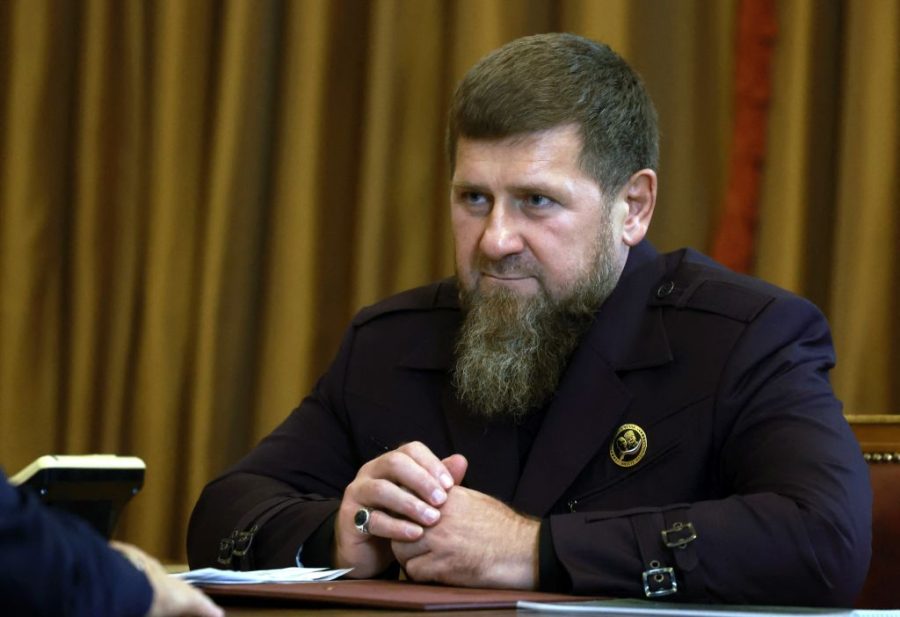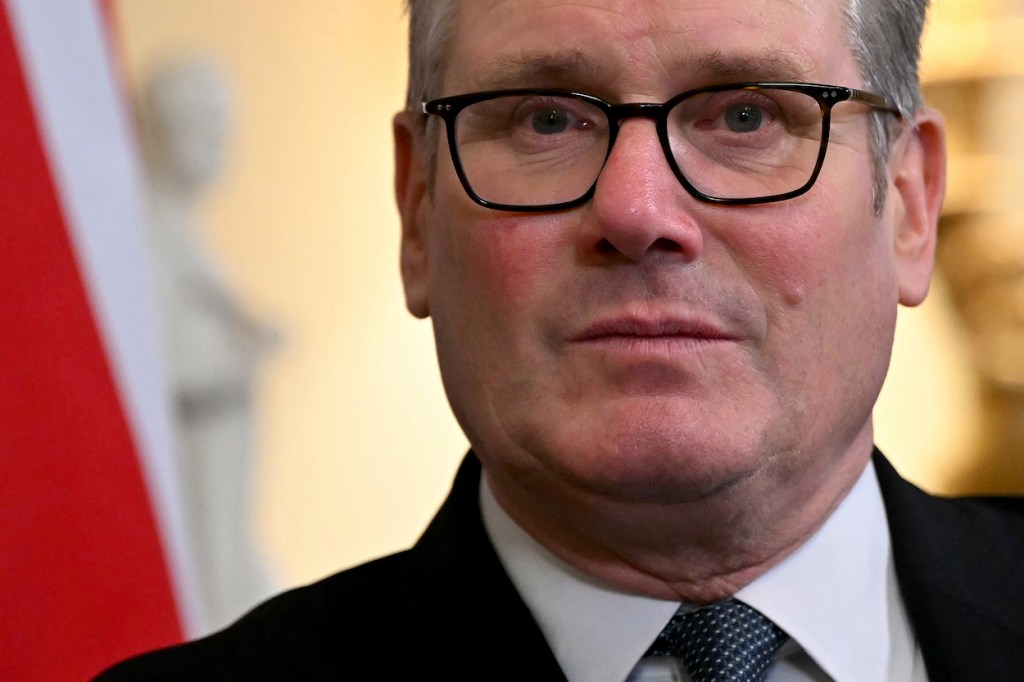Once again, the ruler of Chechnya, Ramzan Kadyrov, is making headlines. And once again, he has announced his intention to step down from his position. But is it for real this time?
Kadyrov has hinted at resigning on at least five separate occasions. Each time, the official explanation as to why he hasn’t stepped down has been that President Vladimir Putin refused to accept his resignation. As Kadyrov, who likes to call himself Putin’s loyal infantryman, dutifully points out, he is always willing to serve his patron – and so he remains in power. These announcements are often accompanied by choreographed public outcries from Chechnya, where citizens, as reported by local media, plead with him to stay.
Real succession in Chechnya remains far from certain
However, analysts and journalists interpret these proclamations differently. For instance, political commentator Nadezhda Yurova sees them as a tactic designed to extract more power, money, or privileges from the Kremlin. With his significant influence in the Middle East, Kadyrov is seen as useful to the Kremlin and is in a position to even negotiate business-related matters within Russia.
Others suggest these announcements serve to reaffirm his perceived irreplaceability or to test the Kremlin’s current willingness to support him. Being widely regarded as a guarantor of stability and peace in Chechnya, Kadyrov enjoys a degree of leverage other regional leaders don’t – even when it comes to dealing with Putin. Political theater such as this also serves to reinforce his authority in the eyes of the Chechen population.
As with previous instances, Kadyrov’s latest ‘resignation’ appears to be little more than a scripted performance aimed at highlighting his loyalty to, and reliance upon, the Russian President. In his later clarification, Kadyrov once again stated that only Putin can decide whether he remains in power or not.
Kadyrov is one of Russia’s longest-serving governors and, due to legal loopholes and legislative changes, is not bound by term limits. In fact, not long ago, he expressed his desire to lead Chechnya ‘forever’, a far more likely scenario than his actual resignation. Yet, in a democratic system, his deteriorating health would be a legitimate reason to step down.
Kadyrov’s unofficial rule began on 9 May 2004, the day his father, Akhmat Kadyrov, was killed in a bombing during the Victory Day parade in Grozny. That same day, Ramzan Kadyrov – dressed in a tracksuit – appeared in the Kremlin to receive condolences from President Putin, who assured him that ‘everything will be okay’. Shortly afterward, Kadyrov was appointed Deputy Prime Minister of Chechnya with control over law enforcement agencies. This solidified his grip on power, allowing him to eliminate political rivals, such as the influential Yamadayev brothers.
Putin kept his promise: the 48-year-old Kadyrov remained ‘okay’ until 2023, when his health suddenly became a serious concern. A lengthy investigation by the independent Russian newspaper Novaya Gazeta even speculated that Kadyrov was dying and that the Kremlin had begun the search for a successor. However, Ramzan survived.
In an authoritarian system where neither personal security nor preservation of wealth can be guaranteed after relinquishing power or dying, Kadyrov’s health issues triggered serious concerns about his children’s future. Since 2023, Kadyrov has reportedly realised that stepping down or dying without securing his family’s position could endanger their safety and wealth.
Following what was described as lengthy, secretive, and potentially life-threatening treatment in 2023, Kadyrov’s return to government meetings was greeted with prolonged applause by his entourage – many of whom are his close relatives. But whether those smiles and cheers reflected genuine relief is anyone’s guess.
Like many authoritarian leaders, Kadyrov suffers from a lack of accurate information about what’s really occurring in his republic. A more pressing concern for him is trust – especially within his inner circle. History shows that many dictators fall victim to betrayal from their closest associates, and Kadyrov has not been immune. In 2017, there was allegedly a plot against him involving several of his own relatives. Others considered loyal also turned out to be unreliable. His close associate Apti Alaudinov losing his influential position in Chechnya due to a breach of loyalty is one such example. To prove his continued allegiance, Alaudinov was later dispatched to fight in Ukraine in 2022.
In short, neither Kadyrov’s underaged children nor his untrustworthy associates can currently guarantee the safety and prosperity of his family. His sons are too young to assume power, and Putin is unlikely to jeopardise stability in Chechnya by babysitting Kadyrov’s legacy. Appointing a regent from among his loyalists wouldn’t solve the problem either – they would likely consolidate power for themselves rather than return it to the Kadyrov family in the future. Faced with these realities, Kadyrov has started preparing for the uncertainties that would follow his death.
To secure his family’s future, Kadyrov is pursuing a two-pronged exit strategy: ensuring a transfer of power to his children within Chechnya, and building a financial safety net abroad. The preferred scenario for Kadyrov involves maintaining power within the family. To that end, he elevated several of his children into prominent government roles. His eldest daughter, Aishat Kadyrova, rose rapidly – from Deputy Minister of Culture to Deputy Prime Minister of Chechnya. Her sister Khadizha, two years younger, went from overseeing preschool education to becoming First Deputy Chief of the Presidential Administration.
It initially appeared as though either daughter might serve as a transitional figurehead, ruling unofficially until reaching the minimum qualifying age of 30 for running Chechnya officially. However, in late February 2024, both daughters abruptly resigned from their positions. The reasons for their departure remain unclear, but not long afterward, both were registered as owners of major local companies – hinting at a shift from political to economic power.
Meanwhile, Kadyrov’s sons were also promoted. His eldest son, 19-year-old Akhmat, became Minister of Sports. More notably, his 17-year-old son Adam was appointed head of Chechnya’s Security Council. In this role, Adam holds significant influence, especially over the security apparatus – a powerful tool for maintaining control.
Parallel to these domestic manoeuvres, Kadyrov has been investing heavily in foreign real estate, particularly in Dubai. Media reports and rumours suggest that he may also have interests in Turkish resorts and hotels. These investments, primarily in the Gulf region and the broader Middle East, provide a hedge against political instability in Russia and offer a fallback option for his family should things deteriorate at home.
Despite these efforts, Kadyrov’s exit from power does not appear imminent. His sons remain too young to fully take the reins, his daughters have apparently stepped away from politics, and he cannot depend on his inner circle to safeguard his legacy. Most importantly, President Putin is unlikely to prioritise the interests of Kadyrov’s family over broader concerns about regional stability.
So, while Kadyrov’s public declarations of resignation may continue to make headlines, they should not be taken at face value. They are better understood as political tactics. Real succession in Chechnya remains far from certain – and the Kadyrov family’s fate after Ramzan’s rule is, at best, precarious.







Comments